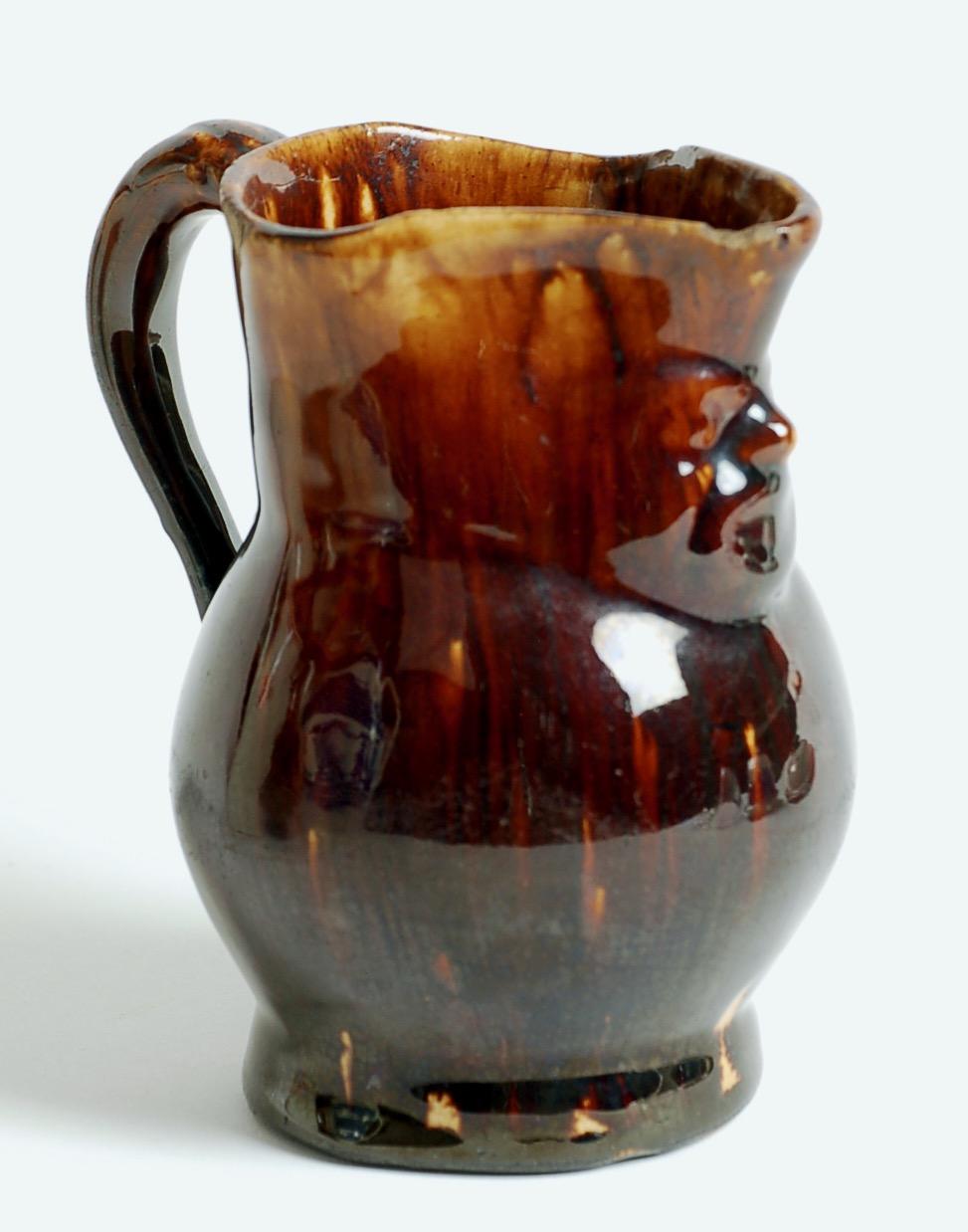Pitcher
Northeastern United States
1850-1900
Measurements
4-7/8 in x 4-1/2 in x 3-1/2 in
Materials
Brown-glazed yellow earthenware (Rockingham ware)
Credit Line
Historic Odessa Foundation, anonymous gift
Accession Number
2020.62
Condition Notes
The pitcher has a few minor glaze flakes along the rim.
Comments
This pitcher is an example of Rockingham ware, a type of pottery that originated in England and subsequently was made in many American potteries throughout the northeast from the mid-19th to early 20th centuries. The slip-cast pottery took its interest from the streaked brown, high-gloss glaze, as well as specific decorative features. This small pitcher is plain except for a crudely shaped mask below the spout. Such pitchers and related forms were commonly called “Toby jugs,” a term of uncertain origin in England in the 1760s and 70s. Typically, they were finely detailed and colored so that the depictions were readily recognizable. This pitcher, in contrast, is not. The mold from which it was made may itself have been made from a cast ceramic pitcher rather than from a form specifically created that would have preserved far more detail. Other evidence of haste in making this pitcher occurs as the misshapen contours of the body around the spout. When removed from the plaster mold and before being fully dried in anticipation of the first firing, this casting appears to have been pushed inward on one side. Both the handle and the foot ring are also bulky and ill-defined.
